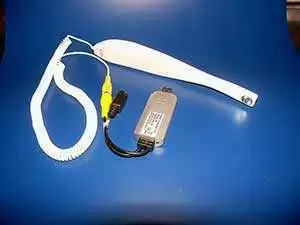Celiac.com 03/18/2015 - Getting high-quality biopsy specimens is key to making accurate celiac disease diagnoses. Endoscopists may take either a single- or double-biopsy specimen with each pass of the forceps.
 Does it matter whether they take one or two? Is two better than one?
Does it matter whether they take one or two? Is two better than one?
Celiac.com Sponsor (A12):
A team of researchers recently set out to answer those questions, by comparing the quality of biopsy specimens obtained with the single-biopsy and double-biopsy techniques.
The research team includes M. Latorre, S.M. Lagana, D.E. Freedberg, S.K. Lewis, B. Lebwohl, G. Bhagat, and P. H. Green of the Celiac Disease Center, Department of Medicine, Columbia University, New York, New York, USA.
Their prospective cohort study looked at patients undergoing upper endoscopy with confirmed, suspected, or unknown celiac disease status. A total of 86 patients enrolled in the study, 47% with known celiac disease, 36% with suspected celiac disease, and 17% with an unknown celiac disease status.
In each case, patients received four biopsy specimens from the second portion of the duodenum. Two were made using the single-biopsy technique of 1 bite per pass of the forceps, and two more using the double-biopsy technique, which takes 2 bites per pass of the forceps.
Specimens were blindly reviewed to determine orientation, consecutive crypt-to-villous units, and Marsh score. Well-oriented biopsy specimens were noted in 66% of patients with the single-biopsy technique and 42% of patients with the double-biopsy technique (P < .01).
Analysis of matched pairs showed improved orientation with the single-biopsy technique (odds ratio 3.1; 95% confidence interval, 1.5-7.1; P < .01). This persisted in subgroup analysis of patients with known celiac disease (P = .02), villous atrophy (P = .02), and a final diagnosis of celiac disease (P < .01).
Now, this is just a single-center trial, so results need to be compared with results from additional cities.
Interestingly, these results suggest that one bite is actually better than two, because the single-biopsy technique improves the yield of well-oriented duodenal biopsy specimens.
For best results, the endoscopists should consider taking only one biopsy specimen per pass of the forceps in patients undergoing biopsies of the duodenal mucosa.
Source:
- Open Original Shared Link






Recommended Comments
There are no comments to display.